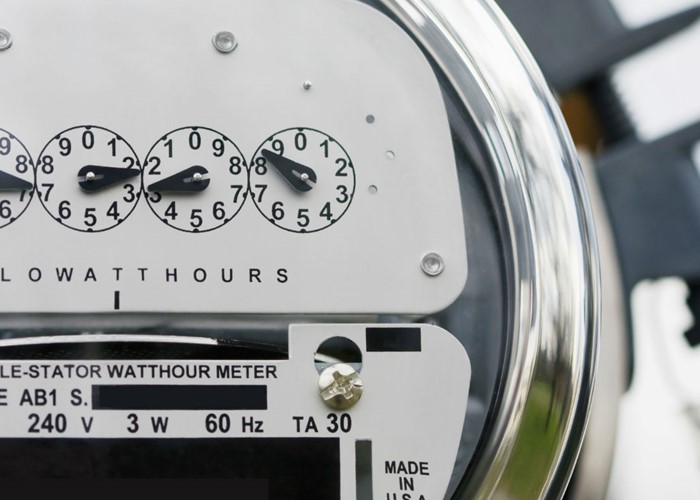Pay no gas bill for two months per year!

Save time and money with benefits from the biggest energy supplier.
In the past few weeks, British Gas has been pushing some creative benefits to attract new customers to its gas and electricity tariffs, including more control over your direct debits, interest-free payment holidays, free insulation and Nectar points. Let's see how good these benefits are, and whether its competitors can do better.
Ease the burden of paying for Christmas
British Gas customers with online accounts can now choose what they want to pay each month, subject to credit status. Unfortunately, they don't mean you can choose to pay nothing at all every month! Your bill will be the same overall, it is just that you could choose to pay slightly less in months where you have high expenditure in other areas, such as Christmas time.
You can also have two months where you pay nothing at all, provided you make it up in the other ten months.
As far as I can see, any special payment options from British Gas' competitors are rather gimmicky and don't save you money or make life particularly easier. However, there is one provider that has an innovative idea on payments that is worth highlighting. I wrote about how you can be paid interest when you're in credit with Ovo Energy in Earn interest from your energy supplier, so be sure to check that out.
Get Nectar points
British Gas is also offering Nectar points in partnership with Sainsbury's Energy.
According to EnergyChoices, Sainsbury's Energy used to be run by Scottish Power and then EDF Energy. It's changing partnerships every five years, so now it's British Gas' turn for a five-year contract.
Related blog post
- Marghaid Howie writes:
Now's the time to change your energy tariff
With the possibility of further energy price hikes later in the year, now could be the time to lock in to a fixed tariff.
Read this post
Dual fuel customers who sign up to British Gas through Sainsbury's Energy will get up to 10,000 Nectar points, plus potentially a few thousand more each year. Single fuel customers get roughly half as many. However, there is no mention of the other British Gas benefits, such as flexible monthly payments, being available through Sainsbury's. What's more, it appears that Sainsbury's Energy is basically British Gas's standard tariff. For those of you who don't know, energy suppliers' standard tariffs are extremely expensive, and they're reserved for those who have never shopped around or who don't shop around after moving home.
Using a post code in Farnborough and average energy usage, for example, British Gas's (and therefore presumably Sainsbury's Energy's) standard tariff costs about £220 per year more than the cheapest offer. 10,000 or so Nectar points may sound a lot, but they aren't worth that extra annual cost.
According to the E.ON website, its customers can receive Tesco Clubcard points at a rate of one point per £2 spent on energy. However, looking through the small print it appears that anyone on a cheap tariff is not allowed them.
It seems to me then that, if you're getting points, you should be concerned about the tariff you're on.
Free insulation
British Gas will install either free loft or free cavity-wall insulation to 200,000 dual fuel customers on a first come, first served basis before 31 May. That is in addition to its existing and ongoing offer of free loft and cavity-wall insulation to the over 70s or those on qualifying benefits.
Rachel Robson gives you the lowdown on five ways to cut your energy bills
For those who don't qualify for free insulation, British Gas has agreements with nearly 60 councils for you to receive a rebate of £125 on home insulation. This offer is available to all, not just British Gas energy customers. It's a large discount, but compare prices with other insulation installers.
British Gas reckons loft insulation could save you up to £145 per year and wall insulation £110, potentially paying for themselves within just one to three years. With half the country receiving price increases this winter (read 10 million energy bills rise), those savings could be particularly useful. You're also reducing your carbon emissions by around 730kg per year for loft insulation and 560kg per year for wall insulation, according to the Energy Saving Trust.
As far as I can see, there are no other providers offering anything like this. Npower offers 50% cashback if you don't claim on its boiler insurance. It has a couple of pricing plans. Bearing in mind the age of your boiler and the terms and conditions you want, I think this could prove the best option for some, but do your research and shop around.
If you want more ways to cut down your costs, read our guide: Cut your energy bills. Please let me and readers know in the comments below if you think I've missed any energy supplier benefits that are likely to save time or money.
More: Compare gas and electricity | Save £10,000 on your energy bill | Can energy-saving devices save you money?
Comments
Be the first to comment
Do you want to comment on this article? You need to be signed in for this feature